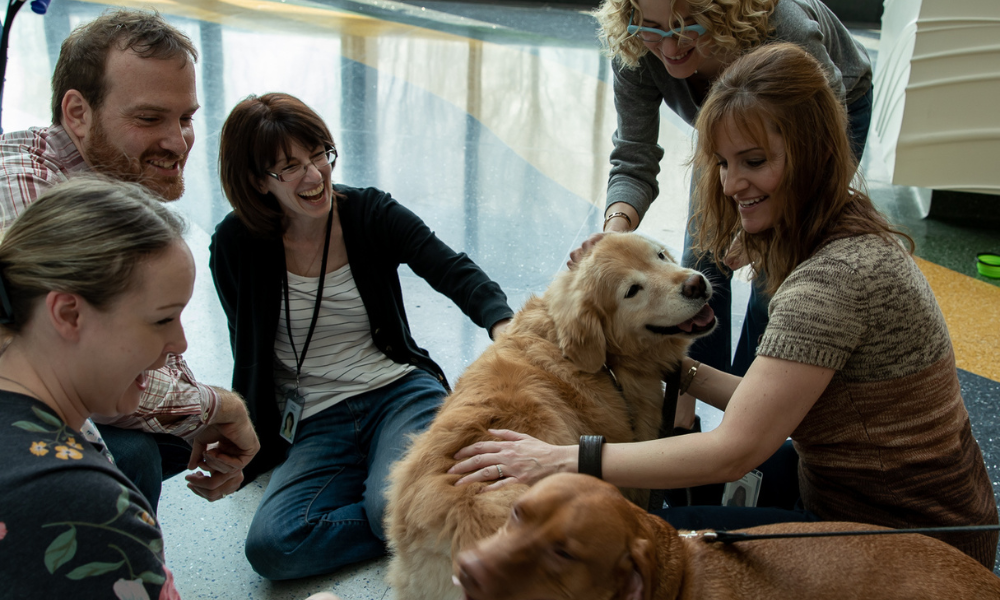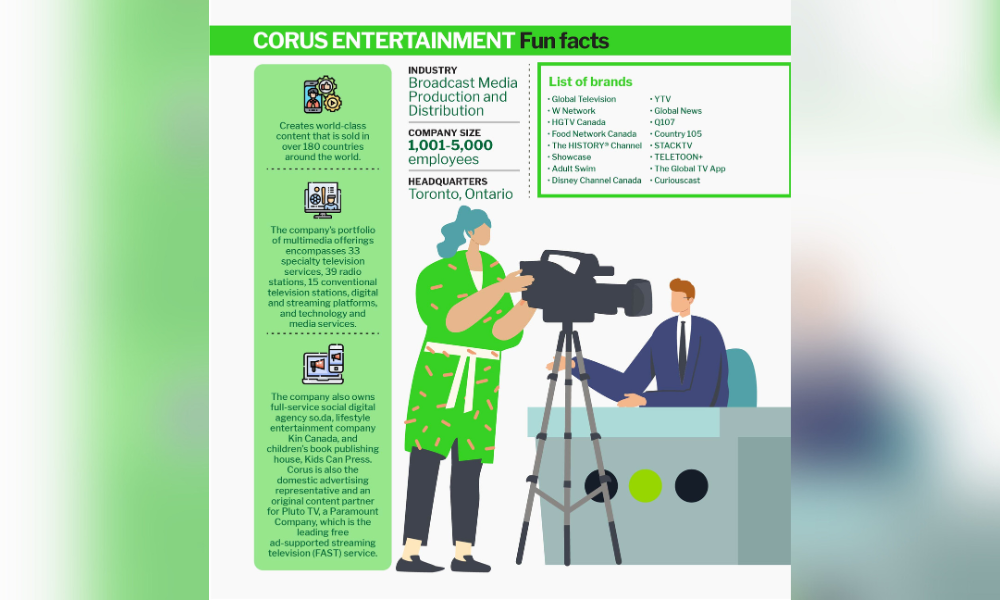
'Nobody should be alone; nobody should be missing information,' Cheryl Fullerton tells HRD

Leading with adaptability and resilience is not just a skill, it’s a necessity for today’s HR professionals. Speaking to HRD, Cheryl Fullerton, the Executive Vice President of People and Communications at Corus Entertainment, says that her leadership style is centered on ways to support and lift people up.
“My personal leadership style has always been focused on a 'How can I help?' philosophy," Fullerton says. "I am driven by trying to make people stronger and finding ways to help them be stronger so that organizations can be stronger. Nobody should be alone; nobody should be missing information."
And it’s this commitment to connectivity and support that forms the backbone of Fullerton's approach to leadership. It's about creating a network where no one feels the full weight on their shoulders. As Fullerton moved into senior leadership positions, this philosophy gained more scope, allowing her to be a connector, a supporter, and a helper.

“At Corus, we created a high-performance model that we use as a foundation for our programs and our leadership expectations,” she tells HRD. “And it's very simple - a high-performance team is aligned to what's important. They're equipped to do great work and they're inspired to love what they do. We go into any problem to solve by trying to see which of those elements might need to be focused on.”
Fullerton joined Corus Entertainment nine years ago on the eve of a major acquisition that saw the company double in size. This marked a turning point where the leadership team had to reevaluate the organizational culture to be more resilient, adaptable, and willing to take risks.
Building a culture comfortable with uncertainty became paramount, considering the unique position Corus holds in the Canadian market and the rapid changes in the media and broadcast industry.
"We restated our values to be anchored in our true character and leaning into the aspirational edge of challenging assumptions," she says.
For Fullerton, overseeing both people and communications is a blessing, allowing her to integrate and align internal and external voices seamlessly. The authenticity of communication becomes a critical factor in minimizing uncertainty and discomfort within the workforce – an approach that ensures that messages are clear, simple, and easily understood, particularly crucial during times of change. In a fast-paced industry, straightforward information builds alignment from the start.
"We have created a very clear, direct, personal, transparent communication style," Fullerton says.
This authentic communication style extends to Corus’ employees and potential hires. Corus’ talent review and succession management process is designed to identify individuals with innate flexibility and learning agility. This emphasis on learning agility aligns with the tools provided to employees to own their careers. Open access to information about other teams, through ‘Corus Fundamentals’ sessions, and robust career development programs contribute to building a workforce capable of navigating change.
“We've got learning programs and we've got a really robust career development program that's about teaching people to figure out what they want to be when they grow up too,” adds Fullerton. “And it's not even tied to our company. It's about what the individual really wants and why - and then giving them some really practical tools on how you go about getting a path to get that. That's to give people the confidence in their own career resilience, which again lowers anxiety that people have through change.”
This philosophy also extends to diversity, equity, and inclusion (DEI), in which Fullerton highlights transparency and integration. Keeping DEI integrated into the day-to-day lives of employees, measuring inclusion regularly, and active employee resource groups that build community within the organization contribute to the authenticity of Corus Entertainment's approach.
"We committed to sharing information, giving quarterly updates on our DEI strategic plan," she says. “We share our representation numbers openly internally and externally. It's one way that we build trust and accountability - but more than that, if you really want to build a culture of inclusivity, I think you have to make sure it's as integrated as possible into the day-to-day lives of the people in your business. Make it very, very present so it never feels like it's a separate topic.”